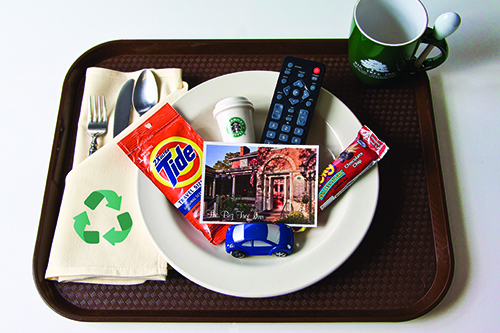
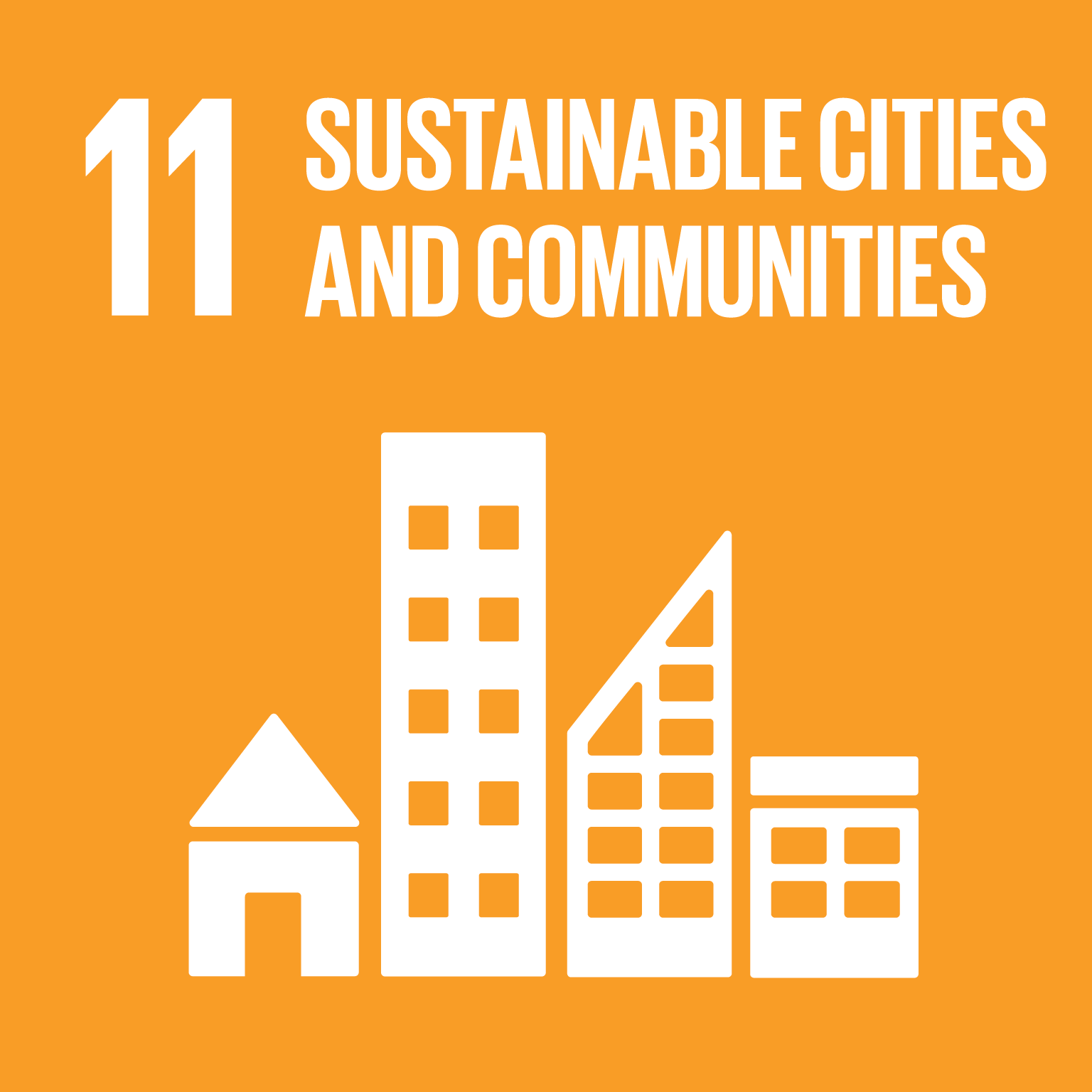

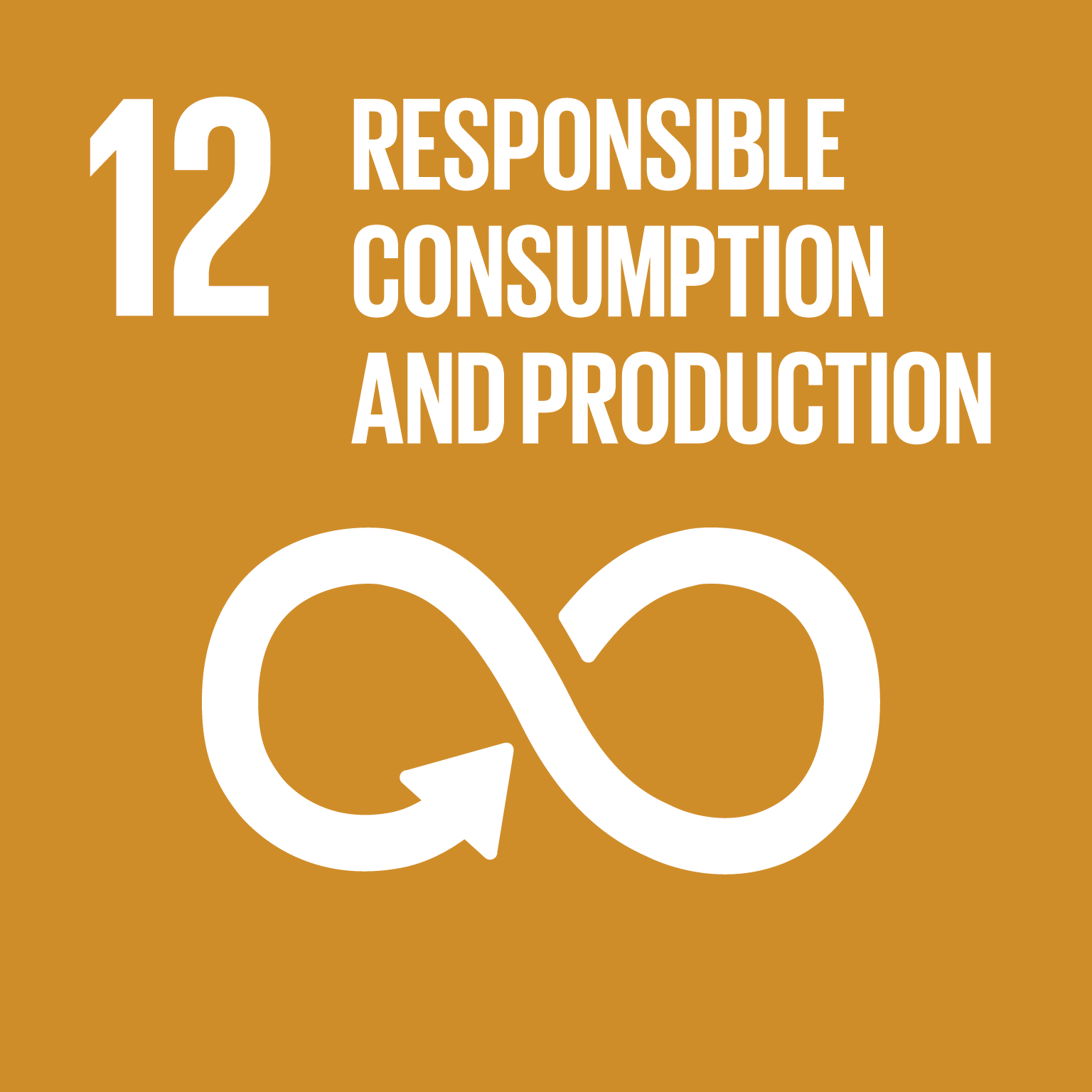
![]() Nancy Davis ’64 was among the first students to work for Campus Auxiliary Services (CAS) when dining halls first opened on campus, doing a semester in the dish room. Back then, the menu was a decent, one-choice meal. She never liked ham, but she learned to eat it.
Nancy Davis ’64 was among the first students to work for Campus Auxiliary Services (CAS) when dining halls first opened on campus, doing a semester in the dish room. Back then, the menu was a decent, one-choice meal. She never liked ham, but she learned to eat it.
“Nothing too frisky or exciting,” laughs Davis. “You got a meal ticket, you went to the cafeteria and you ate what they gave you.”
What a difference 50 years can make.
Every Tuesday this semester, Mallory Shaffer ’15 is earning money toward next year’s tuition by stir-frying baby bok choy and fresh-cut vegetables in house-made lemongrass and teriyaki sauces at Fusion Market. The Student Union eatery features flavors inspired by world cuisine, and every dish is made to order. There is always a line.
Like Davis and Shaffer, every Geneseo student of the last 60 years or so — more than 50,000 — has lived intimately with CAS, the not-for-profit company that operates independently of the college and delivers dining and a host of other services on campus for students, faculty and staff. More than 10,000 students have worked for CAS for pocket money or to pay for their education over the years.
CAS has always been a vital — and often inconspicuous — partner at Geneseo, enhancing daily life on campus by helping to make it tick. CAS also supports the college’s mission to be an innovative and effective environmental steward. It even provides scholarships and undergraduate research fellowships.
CAS has evolved from offering simple cafeteria-style meals to an operation with more than 500 employees that touches faculty, students and others, often in surprising ways — many unrelated to traditional dining.
Even the meaning of dining on campus has changed. Davis was astonished to hear that students are ordering grilled cheese, burgers and warm, gooey chocolate-chip cookies from a new food truck — parked outside their residence hall and open ’til 1 a.m.
“That just blew my mind,” she says. “… I am absolutely amazed at what they have going on there now.”
•••
What CAS does
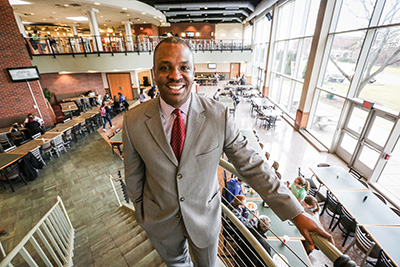 CAS Executive Director Mark Scott and his staff are responsible for all eight campus restaurants and cafés, including Fusion andStarbucks, and the Chowhound food truck.
CAS Executive Director Mark Scott and his staff are responsible for all eight campus restaurants and cafés, including Fusion andStarbucks, and the Chowhound food truck.
Overnight in the culinary support center at Red Jacket, employees prep and pack 1,500 salads and other “grab-n-go” items sold around campus. Impressions Catering provides snacks to full meals for more than 1,200 events each year, from student-club culture nights to the President’s Recognition Dinner and Summer Reunion. CAS also runs the historic Big Tree Inn.
The other things CAS does are less known but equally impressive. Take a single student’s experience:
CAS runs the restaurant where Courtney Cataudella ’15 eats yogurt for breakfast, and the meal plan program she uses to buy it at Mary Jemison. CAS runs the identification services where Courtney got her Geneseo ID used for purchasing meals and accessing her residence hall. CAS manages the contract for the company that runs the Geneseo University Bookstore, where she bought her political science textbook, and the vending machine in the Union where she gets her late-night hummus and chips . CAS rents her micro-fridge and provides the equipment she uses to watch her favorite TV shows and to do laundry.
Courtney’s daily Starbucks fix? It’s open when she needs it, ‘til 2 a.m. She also can rent a car through CAS.
CAS handles refuse for the dining operations and all campus recycling, too.
“I knew a little bit about what they did, but that’s surprising,” says Cataudella, who is also a cashier in Fusion. “I usually just think of CAS as providing food on campus but it’s enlightening to realize they provide almost all of the residential services that really make living here comfortable.”
It takes some 375 students and 150 community members, working full or part time, to make it everything run smoothly. Those include a certified executive chef, four professional chefs and a registered dietitian available to students.
They all serve one mission, says Scott: “Support the mission of the college. That’s it. Period.”
That increasingly means providing necessary services as conveniently and with as much customization as possible. Being a not-for-profit company and being independent provides nimbleness, says Scott, with the benefit of allowing CAS to run more like a private entity.
“We’re really creating more of an experience,” says Rebecca Stewart ’04, CAS marketing coordinator. “We want to provide those extra services with those extra touches to make it special, to make it convenient … It’s not a cookie-cutter experience.”
Such continual innovation is more than luxury. Life on campus is a big part of the Geneseo experience, and Scott is keenly aware that such amenities are increasingly important for students choosing schools.
“Today schools are much more competitive, and it’s not just about being more competitive in the classroom,” says Scott. “Students look at quality of life, too .. We carry a tremendous responsibility to help Geneseo be competitive and enrich the college experience.”
CAS evolution
CAS is midway through its five-year strategic plan to elevate all dining facilities on campus. A revamped Corner Pocket and the Fusion Market opened last spring. At all restaurants, nearly everything is house-made.
Homemade and custom-order will reach a new level in 2014 when Letchworth Dining Hall reopens after a $13 million renovation.
The new Letchworth will feature a from-scratch bakery and diet-specific stations that cater to kosher, halal, gluten-free and vegan diets, and a “Top Chef” area where students can eat while watching chefs’ cooking demonstrations. It will also double as an events venue.
Another SUNY first: Geneseo’s “purple” chefs.
Geneseo’s CAS trained chef assistants, managers and student supervisors in preparing food for those with food allergies and introduced a special crew of employees who can make any meal for those who have food allergies, at any campus restaurant. They wear checkered hats and carry a special purple suitcase of kitchen tools.
Geneseo was the first SUNY campus to introduce the “purple suitcases” in dining centers, says Scott.
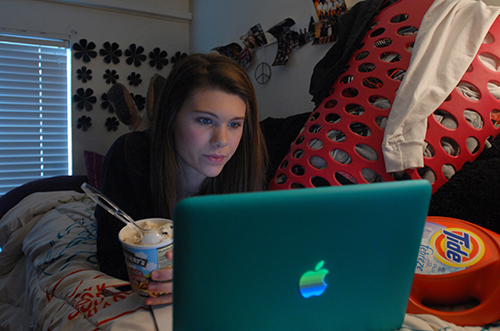 Change is increasingly quick — and geared toward convenience — as technology progresses. Students don’t even have to leave their residence hall room to see which washing machines and dryers are free. They can see the status of their wash from their computer, and keep studying.
Change is increasingly quick — and geared toward convenience — as technology progresses. Students don’t even have to leave their residence hall room to see which washing machines and dryers are free. They can see the status of their wash from their computer, and keep studying.
“I couldn’t imagine that would happen, but I certainly would have loved it,” says Dan Bock ’76, who worked in the dish room while at Geneseo.
A leader in sustainability
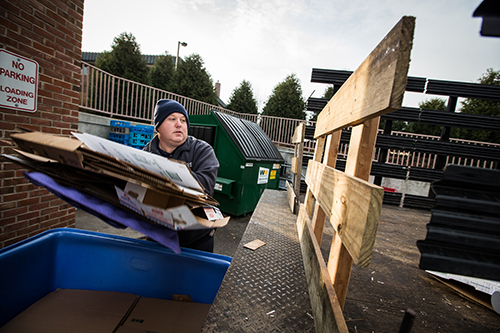 CAS has worked to make operations more efficient and help Geneseo reduce its impact on the environment; it’s one of a small group of SUNY auxiliary services organizations that examine sustainability at campuses statewide.
CAS has worked to make operations more efficient and help Geneseo reduce its impact on the environment; it’s one of a small group of SUNY auxiliary services organizations that examine sustainability at campuses statewide.
CAS’s introduction of high-efficiency washing machines, recycling and other programs have saved Geneseo more than 6.4 million gallons of water since 2007, and 8.5 tons of paper products from being dumped in landfills each year.
Composting food scraps from the packaged meals made at the culinary center converts more than 14,000 pounds of food into mulch in the campus compost pile, which is used in campus landscaping.
Those big and small changes add up. (Read about how CAS is initiating locally sourced foods).
CAS also dedicates some of its operating budget to purchase goods and services from businesses in a 100-mile region of Geneseo, and from minority and women-owned businesses.
“We believe in our responsibility to be stewards for Geneseo,” says Scott. “We focus on the broader definition of sustainability — not just reduce, reuse, recycle around material resources. We also focus on how to sustain communities and their well-being.”
Student Impact
CAS also plays a significant role in hundreds of students’ lives each year by easing their financial burden for an education through work. Along the way they gain career skills, a new social circle and memories that resonate for a lifetime.
Gina Middleton ’14 waitresses at the Big Tree Inn and serves as a student supervisor for the campus catering service to pay for her car insurance, gasoline and rent while she’s earning her degree in English and adolescent education.
She needs the job but she racks up extra hours for something else. She met her best friend working. Her boyfriend. Spreading butter into trays for diners — and bantering with her buddies while doing it — feels as much like hanging out as work.
“I love my job, I really do. I couldn’t imagine school without it,” says Middleton. “It’s my social life.”
Like Middleton, Shaffer is thankful she can work on campus. But it’s more than that. Working at CAS is like “working within a community,” says Shaffer.
That community is one Middleton knows isn’t likely to happen again. She knows these four years will be among the ones she misses most. An English and education major, Middleton doesn’t plan on a career in hospitality, but has realized how important it is to feel good coming to work.
“I don’t want to leave!” says Middleton. “CAS has integrated into every part of my life. Once I graduate, the most important thing to me will be being able to make a living and be happy doing it.”
Decades later, alumni like Kevin Gavagan ’75, a member of the Geneseo Foundation Board of Directors, knowabout such memories. Some of Gavagan’s best at Geneseo were at the Rathskellar, a bar in the basement of Letchworth that CAS operated.
It closed more than 30 years ago, but its closing is still mourned by many.
“I served the first drink ever served there,” says Gavagan, who bartended and was a student manager when the beer of choice, Genny Cream Ale, was a quarter and you could buy “subs and suds” with your meal plan.
“It was the hometown bar,” says Gavagan. “It was a happy, safe place to hang out.” After it closed when the drinking age was raised to 19 in 1982, Gavagan, says “we shed a brief tear over the passing of an era.”
CAS also offers $1,000 scholarships to 10 student employees annually, and in partnership with Follett, the company contracted to run the bookstore, provides $6,000 per year for undergraduate research. Follett also provides $5,000 in textbook grants for financially eligible students.
CAS has also made a $500,000 commitment to Shaping Lives of Purpose: The Campaign for Geneseo. This year, CAS provided a $20,000 research grant to two Geneseo education professors who are exploring how iPads and digital texts and tools are integrated into courses.
While many students who work at CAS ultimately choose careers outside of hospitality, for others the entire CAS experience, in part, inspired them to join the field — some right at Geneseo.
Shayne Cook ’02 majored in studio art but worked in kitchens his whole life — including grilling burgers and doing the dishes at Geneseo. When he decided to move in a different direction, he chose food service. He has been assistant manager at Red Jacket for three years.
The philosophy at Geneseo, and the ability to make a home away from home, and have such impact, inspired Stewart to build her career with CAS.
“There were a lot of things I saw within the company while I was a student worker that interested me so much — and I could see so much change in those four years and so much excitement, I decided to make it my home,” says Stewart.
More:
WASTE NOT: What we save
• 14,400 – Pounds of food trimmings composted from the culinary support center in Red Jacket Dining Hall, where pre-packaged salads and snacks are prepared.
• 8.5 —Tons of paper products saved from the landfill each year through recycling.
• 6.4 — Million gallons of water saved since high-efficiency washing machines were introduced on campus in 2007 — enough to fill the campus pool 17 times!
• 40 — Percent reduction in food discarded by each student per meal in dining halls since trays were eliminated at the buffet.
• 20,000 — Cans and bottles potentially saved from landfills each year by adding recycling receptacles at on-campus catered events.
• 1 — million napkins saved by using dispensers that encourage less waste in dining centers.
• 3,318 — Pounds of milk, produce, deli meats and other food donated to Foodlink for needy families in the greater Rochester region at the end of the spring 2012 semester.
Related Stories
No post found!
